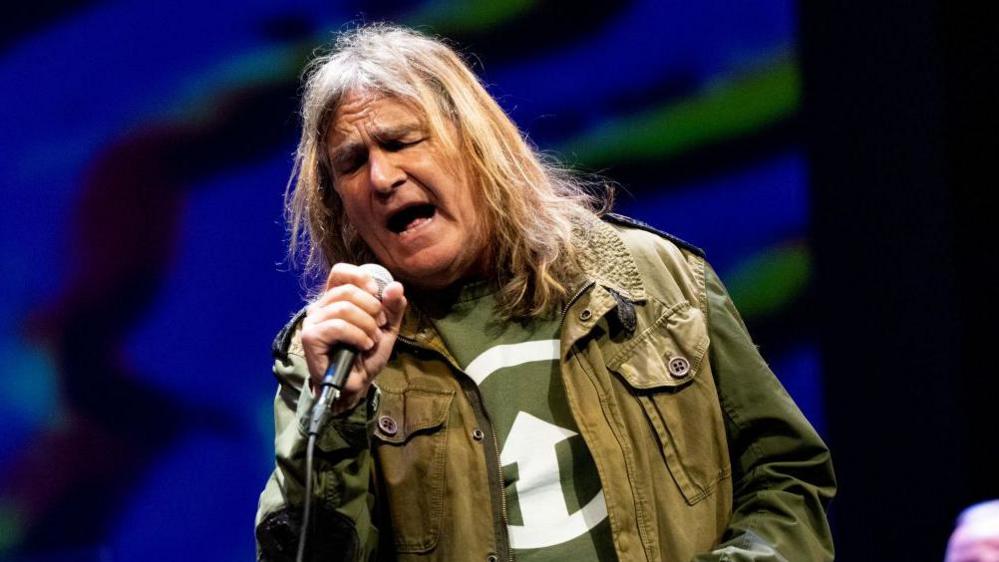Singer calls for stem cell donors as cancer returns

Mike Peters was first diagnosed with chronic lymphocytic leukaemia more than 29 years ago
- Published
The frontman of a Welsh rock band says his future is uncertain after his rare aggressive cancer returned.
Mike Peters of The Alarm has appealed to people to become potential stem cell donors.
Peters, who was forced to cancel a US tour earlier this year due to his fast-growing lymphoma, was given the all-clear in September following experimental therapy at the Christie NHS Foundation Trust in Manchester.
But the 65-year-old has revealed it returned last month.
- Published8 November
- Published11 November
- Published7 October
Peters, who has supported U2 and Status Quo on tour, was first diagnosed with chronic lymphocytic leukaemia (CLL) more than 29 years ago, aged 36.
Earlier this year, medics diagnosed him with Richter's syndrome, where CLL changes into a much more aggressive lymphoma.
He is now on a chemotherapy regime, with a view to starting CAR-T therapy - a complex and specialist type of immunotherapy.
Peters, from Denbighshire, established the Love Hope Strength Foundation in 2006 with his wife Jules, 57. They have two sons, aged 17 and 20.
It has launched a new campaign, One in a Million, to double the number of people signed up as potential stem cell donors having already encouraged 250,000 people to register.
"I was supposed to be preparing for a stem cell transplant now, exactly 29 years since I was first told I had the disease," said Peters.
"Unfortunately, Richter's syndrome has aggressively broken down my hard-earned remission and denied me the opportunity to have this potentially life-saving procedure."
The Alarm frontman with his wife Jules who has also recovered from breast cancer
He added: "The future is uncertain, but I still have many options and as I navigate those, I want to make sure I help other blood cancer sufferers like me."
His partner Jules added: "Although this latest set-back has been a devastating blow for our family, it affords us more time to find the best life-saving match for Mike."
Michael Gallagher, from the blood cancer charity DKMS which works in partnership with the foundation, added: "Currently, only 60% of patients will find a matching stem cell donor, making the need for new donors critical.
"We want to help people with blood cancer receive a stem cell transplant and have the best possible chance for a healthier future."
- Published30 September
- Published28 December 2018